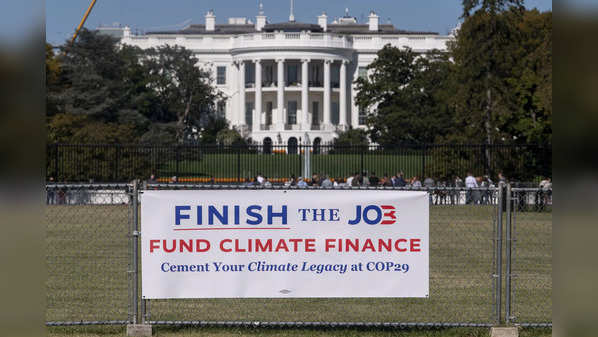Environmental groups brace for legal battles in a second Trump term

23-Nov-2024 05:41 AM
With a second Trump administration on the horizon, environmental advocacy groups are gearing up for an intense legal fight. Drawing from the experiences of Trump's first term, they expect a swift rollback of key environmental protections, from expanding oil and gas drilling to dismantling Biden-era climate initiatives.
Preparing for Aggressive Policy Shifts Environmental groups anticipate that Trump will waste no time pushing for “American Energy Dominance”—his policy goal to increase fossil fuel production and roll back regulations on oil and gas. Already, his Cabinet picks give a glimpse into his agenda. North Dakota Governor Doug Burgum, an advocate for boosting domestic oil production, has been nominated for Secretary of the Interior, while Chris Wright, a CEO from the oil industry, is slated to be Energy Secretary. During his first term, Trump’s administration took at least 74 actions to weaken environmental protections, according to the Brookings Institution. Environmental groups expect an even more aggressive approach this time, with some worried that the administration may disregard legal boundaries in pursuit of its agenda. “We’re preparing for the potential aggressiveness and disregard for the rule of law,” said Brett Hartl, government affairs director at the Center for Biological Diversity. The center, along with other organizations like the Natural Resources Defense Council (NRDC), is already raising funds to fight back in court. Legal Challenges on the Horizon Both the NRDC and the Center for Biological Diversity have extensive experience challenging Trump’s environmental policies in court. The Center for Biological Diversity filed 266 lawsuits during Trump’s first term, winning 87% of them. Some of its biggest victories included blocking an offshore drilling project in the Arctic and reversing the removal of grizzly bears from the endangered species list. The legal strategy is already in motion. Jillian Blanchard , head of climate and environmental justice at Lawyers for Good Government, is working to ensure that clean energy investments under the Inflation Reduction Act are protected from any attempts to claw back funding. The Project 2025 Roadmap Although Trump disavowed the Project 2025 policy plan during his campaign, many environmentalists believe it will still shape his administration’s agenda. The plan, put together by the conservative Heritage Foundation, calls for stopping what it calls the “war on oil and natural gas” and pushing for an end to federal climate research. “People involved in Project 2025 are already being appointed to the administration,” said Andrew Wetzler of the NRDC, expressing alarm over the implications for climate policy. The Battle Over Federal Lands One of the most contentious areas expected to see action is the status of protected federal lands. In the past, Trump reduced the size of the Bears Ears National Monument in Utah by over 1 million acres, and many anticipate he will target Bears Ears and Grand Staircase-Escalante again in his second term. “We are not working from a blank slate,” said Ethan Aumack of the Grand Canyon Trust, a group that successfully fought the reductions in court. “We’ll take any efforts to dismantle these monuments back to court if necessary.” Potential Areas of Resistance Despite the expected battles, there are areas where Trump’s administration may encounter resistance, even within Republican ranks. For example, investments from the Biden administration’s infrastructure plan, which include funding for clean energy and electric vehicles, are benefiting districts in red states like Arizona, Georgia, and North Carolina. These investments may face pushback if Trump attempts to disrupt them. Additionally, clean water remains a relatively bipartisan issue, with many Republicans also advocating for conservation efforts, particularly in areas where outdoor activities like hiking, fishing, and hunting are integral to local economies and lifestyles. Looking Ahead: Legal Fights and Lobbying Efforts Environmental advocates are bracing for a challenging few years under a second Trump presidency. Their strategy revolves around rapid legal responses to any rollbacks of federal protections and continued advocacy for sustainable policies. Wetzler points out that, despite the hurdles, there is strong bipartisan support for protecting natural resources, particularly water, and that could provide a bulwark against more extreme actions. The coming years will see an ongoing battle over the future of U.S. environmental policy, with the fate of national monuments, climate initiatives, and clean energy investments hanging in the balance.